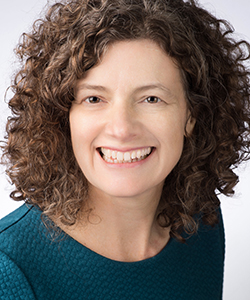Professional learning’s impact comes from alignment across subjects, grades, and buildings
By Tracy Crow
December 2011
Vol. 32 No. 6
When we talk about teacher evaluation through the Learning Forward lens, our goal is that standards-based professional learning will provide the context for how school and district leaders respond to the data that evaluation systems generate. As David Steele, chief information and technology officer of Hillsborough County (Fla.) Public Schools, says, “Teacher evaluation is the centerpiece to the extent that it gets publicized in that way, but any of us would say the professional development is the centerpiece” (see “Measurement makeover”).
However, not every school system takes this holistic view or uses this kind of language. In different systems and contexts, the professional learning sidekick to teacher evaluation is labeled and framed in ways that portray an entirely different attitude. As a result, some teachers envision the professional development that accompanies teacher evaluation as remedial, designed to address their particular deficiencies in a vacuum. It’s time to shift away from this perspective and seek alignment among individual, team or school, and systemwide learning.
More than 20 years ago, Dennis Sparks and Susan Loucks-Horsley wrote an article in this publication that has since become foundational to educators’ understanding of different models of staff development, as it was then termed. “Five models of staff development for teachers” (1989) described the types of professional development that teachers participated in and provided context and research information about each model.
One of their models, individually guided staff development, is useful to examine during a time when systems are working to most effectively couple teacher evaluation and professional learning. As they wrote, “Individually guided staff development refers to a process through which teachers plan for and pursue activities they believe will promote their own learning” (Sparks
& Loucks-Horsely, 1989, p. 41). The research base for the model shares many of the same emphases as the Learning Designs standard from the recently released Standards for Professional Learning, stressing the importance of recognizing that learners are at different stages of expertise and readiness and that they learn in different ways.
As the standards emphasize, and as Sparks and Loucks-Horsley recognized, such individually oriented learning is but one aspect of professional learning that has the potential to change educator performance and increase student results. We know that professional learning cannot start and end with the individual teacher, nor can a teacher’s desires and assessment be the sole driver of the learning in which he or she participates. The data informing professional learning comes from many sources, and students’ needs are paramount to those of the teacher. Just as important, the professional learning with the most impact for the most students is collaborative, sustained, and aligned across subjects, grades, and buildings.
Remembering to keep the improvement of the individual, the team or school, and the entire district in mind certainly makes for complex evaluation systems, as you’ll read about in this issue of JSD. You’ll find that there are school districts using learning systems that strike this balance, and
as information emerges from such districts, more educators will have the tools to follow their lead.
We offer gratitude to the Bill & Melinda Gates Foundation for its support of this issue of JSD and of other Learning Forward efforts to disseminate information from the foundation’s significant investment in understanding teacher effectiveness.
References
Sparks, D. & Loucks-Horsley, S. (1989, Fall). Five models of staff development for teachers. Journal of Staff Development, 10(4), 40-57.

Tracy Crow served as chief strategy officer for Learning Forward.
Recent Issues
EVALUATING PROFESSIONAL LEARNING
February 2024
How do you know your professional learning is working? This issue digs...
TAKING THE NEXT STEP
December 2023
Professional learning can open up new roles and challenges and help...
REACHING ALL LEARNERS
October 2023
Both special education and general education teachers need support to help...
THE TIME DILEMMA
August 2023
Prioritizing professional learning time is an investment in educators and...








